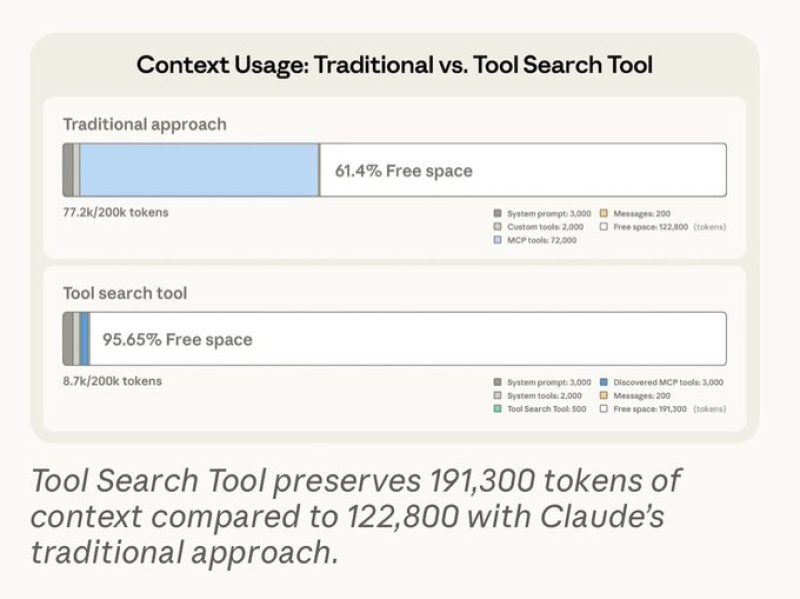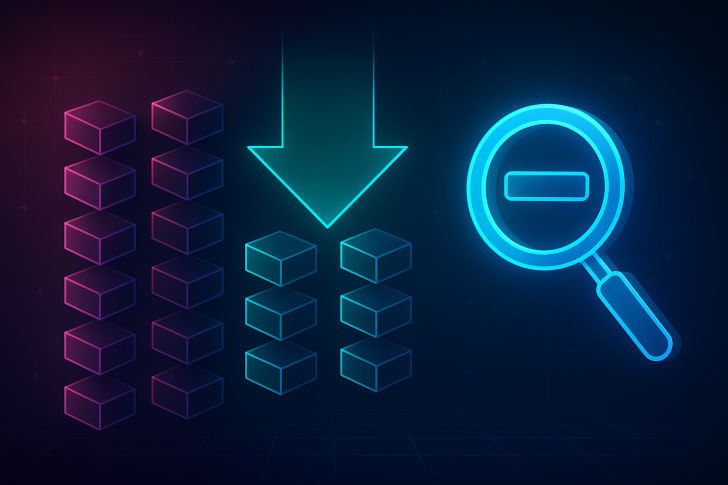⬤ Anthropic released a major update to how Claude handles tools. The update solves the long standing problem of wasting tokens when you run multiple MCP servers right away. The company introduced a Tool Search Tool that locates the required tool when it is needed, instead of loading every tool definition at the start. The figures are clear - the older method consumes about 77,200 tokens and leaves only 61.4 % of the context window unused, whereas the new method uses only 8,700 tokens and leaves 95.65 % of the 200,000-token window free. That leaves 191,300 tokens available for the rest of the task.

⬤ The decisive feature is the tag “defer_loading - true.” When a tool carries this tag, Claude fetches the definition only when the tool is invoked. Internal tests showed that the usual 50,000 - 100,000 tokens spent on tool definitions dropped by 85 %. The context window no longer overflows besides Claude no longer becomes confused when too many tool descriptions fill the prompt. The approach resembles the Skills framework in Claude Code - load a tool only when the task requires it, instead of loading every tool in advance.
⬤ In addition to dynamic discovery, Anthropic added programmatic tool calling. Claude can now write Python scripts that link multiple tool actions. All intermediate steps run inside the sandbox - only the final result leaves it - token use stays low. Developers may also supply input_examples that show Claude exactly how each tool behaves - those examples go beyond the basic schema. When you combine those features, Claude handles complex tool setups far more reliably while acting as an agent.
⬤ The release arrives at a moment when the entire AI field prioritises efficiency, while cloud providers like Amazon accelerate AI automation. By cutting token overhead and - making orchestration more flexible, Anthropic establishes a new benchmark for managing large tool libraries inside high context models. The move toward dynamic loading and code-driven coordination is likely to change how both researchers and enterprises design AI agents and automated workflows.
 Peter Smith
Peter Smith

 Peter Smith
Peter Smith


